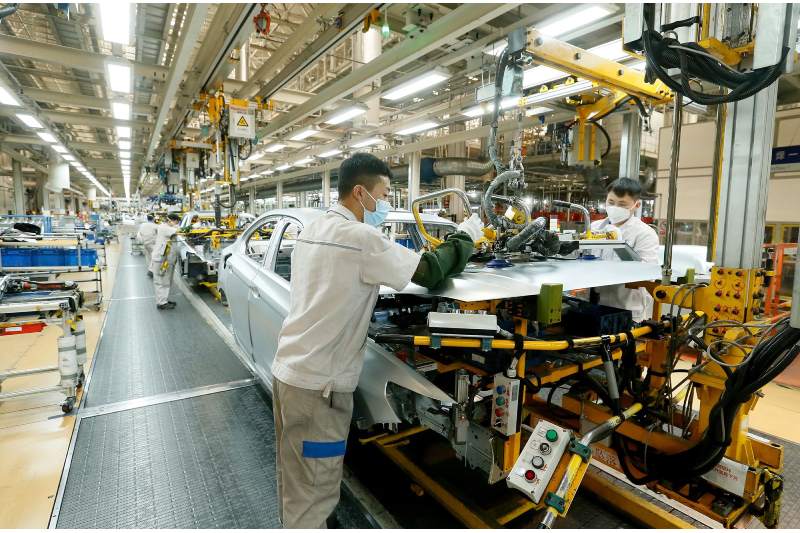A survey of factory managers released on Sunday indicates that manufacturing in China increased in March after declining for five consecutive months. This suggests that industrial operations may have picked up after the Lunar New Year holiday.
From 49.1 in February to 50.8 in March, the official purchasing managers index, or PMI, increased. The PMI has a range of 50 to 100, with 50 representing the boundary between growth and contraction.
Throughout the last 12 months, the monthly manufacturing PMI has primarily been below 50: Only September had an increase in factory activities, excluding this month.
Senior statistician Zhao Qinghe of the National Bureau of Statistics stated that as businesses resumed and accelerated production following the Lunar New Year holiday, the market became more active. Due to a shortage of fresh orders, many firms shut down over the vacation. According to social media posts, employees at certain enterprises took a 140-day leave of absence beginning in late 2023.
According to Zhao, the poll also revealed that several issues for businesses persisted, such as a lack of market demand and heightened industry competitiveness.
China announced in March that it will urge people to trade in their cars for electric vehicles and toss out obsolete appliances in order to increase domestic demand during the National People’s Congress annual session. Additionally, it stated that modernizing manufacturing and upgrading sectors would receive 10.4 billion yuan ($1.4 billion).
Zhao stated that in order to maintain the superior development of the manufacturing sector, more work needs to be done in implementing the policies that encourage consumer goods trade-ins and large-scale equipment upgrades.
The non-manufacturing PMI increased to 53 from 51.4 in February, according to the survey that was made public on Sunday. Since June 2023, this reading has been the highest.
One of the biggest challenges encountered by the second-largest economy in the world during its post-pandemic recovery was the real estate sector’s decline following government actions to limit property developers’ excessive borrowing.
This year, the ruling Communist Party wants to expand the economy by roughly 5%, a goal that many believe may be challenging to meet.
